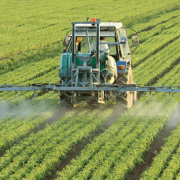Spain: EC approves additional quota for the withdrawal of 3,015 tonnes of fruit and vegetables
As part of the exceptional measures against the Russian veto, the European Commission has granted Spain an additional quota for the withdrawal of 3,015 tonnes of fruit and vegetables by publishing a resolution in the Official Journal of the EU (DOUE) of March 4th. This measure responds to a request from Spain, which requested the reallocation of the 18,000 tonnes that were not used by other Member States. Following the reallocation of the additional quotas, Spain remains the second beneficiary Member State of aid to producers, behind Poland.
The European Commission has published in the Official Journal of the EU on 4th March a Resolution reassigning the additional quotas for the withdrawal from the market of 18,000 tonnes of fruit and vegetables which had not been used by other Member States, in the context of the current exceptional measures to assist fruit and vegetable producers in dealing with the Russian veto.
The reallocation of this quantity, corresponding to the exceptional quotas of 3,000 tonnes not used by six Member States, had been requested by Spain to the Commission, which granted to our country 3,015 tonnes.
The additional quota granted to Spain accounts for 17% of the total, making our country the second beneficiary Member State, behind Poland, the country most affected by the Russian veto
The apple, the only beneficiary product
The Regulation gives flexibility to the Member States for the allocation of this additional quota to products and beneficiaries. In Spain, taking into account the opinion of those representative organizations of the sector that have manifested themselves, and analyzing the market situation of the products currently in the field, it has been decided to allocate this quota entirely to the apple.
This product is experiencing significant difficulties in the current season, especially in small sizes, due to the high presence in our apple market from other producer Member States, which traditionally exported to Russia and have derived their productions to the European Union market, faced with the difficulties of finding alternative markets.
As usual since the establishment of the Russian veto and the corresponding exceptional measures of the European Union, the Spanish Agricultural Guarantee Fund (FEGA) will establish the procedure to be followed by the autonomous communities for the management of this quota.
Source: MAPAMA
















